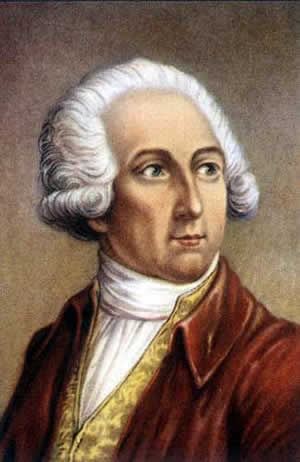It was a French chemist named Antoine Lavoisier who formulated the concept of the conservation of mass – the idea that matter can neither be created nor destroyed, only rearranged. If we account for all reactants and products in a chemical reaction, the total mass will be the same at any point in time in any closed system.
Discovery of law of conservation of mass helped to turn chemistry into the respectable science it is today. The law of conservation of mass is very important to the study and production of chemical reactions. If scientists know the quantities and identities of reactants for a particular reaction, they can predict amount of products that will be made. Chemical manufactures can increase the efficiency by applying the law of conservation of mass to their laboratory practices. When we balance equations, we need to make sure that the same number of atoms of each element is present on each side of the equation.

Figure 1.Antoine Lavoisier
One of Lavoisier’s experiments entailed placing a burning candle inside a sealed glass jar. As the wick burned down and the candle melted, the weight of the jar and its contents remained the same, thereby proving his pioneering theory. At the time, chemists were exploring the formation of calx (an oxide), predicting that metals lost mass as they were burnt. Lavoisier countered this with the idea that calx was the result of atmospheric gas interacting with the metal. Rather than the metal losing mass, he found it gained weight by combining with oxygen from the air.
Through VRLab Academy, students can have hands-on experience with a virtual lab in VRLab Academy that shows the law of mass conservation. They can learn much as Antoine Lavoisier did, using scientific principles in an online simulation. They can do the same experiment several times or try out different versions. This way, you will get new experiences and acquire new knowledge. This is an experiment that changes the world for students!
References